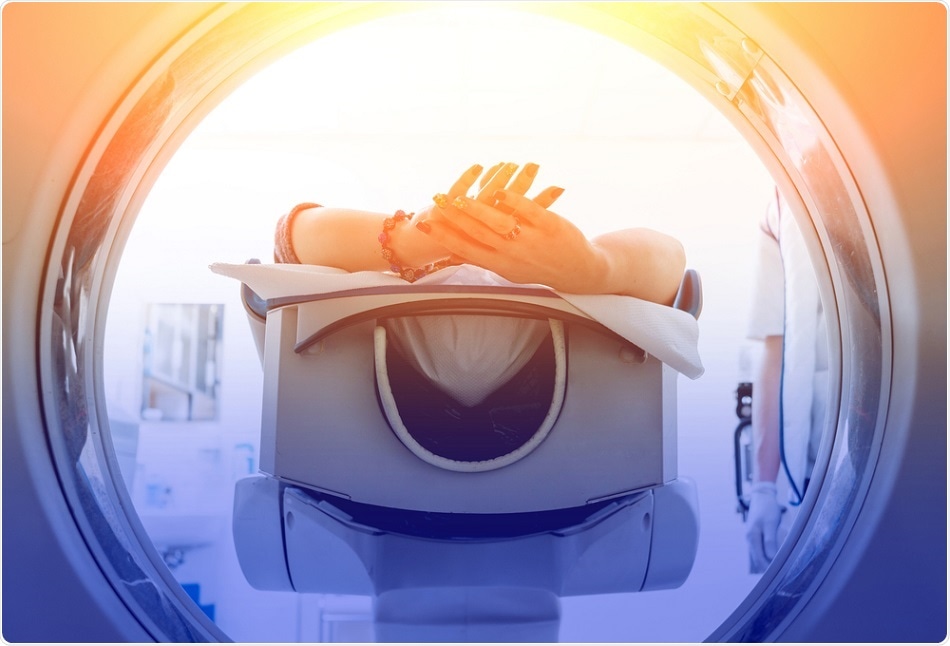Rather like a physical fingerprint, the gut microbial pattern can be used to identify certain vulnerabilities in patients who are undergoing radiation therapy for prostate or gynecologic cancer, predicting which of them are most likely to suffer damage to the intestine. The new study reporting this finding was published in the journal Clinical Cancer Research on October 2, 2019.
 Roman Zaiets | Shutterstock
Roman Zaiets | Shutterstock
The human gut microbiome
The human gut contains about 37 trillion bacteria, both beneficial and potentially harmful. The effects of these bacteria, which are found at the highest concentrations in the large intestine onwards, are manifold. They vary with the person’s genetic blueprint, as well as with the type of diet that is habitually eaten.
They help to digest food and provide several vital substrates to the body, helping to handle energy inputs more efficiently and run the metabolism smoothly, for instance. In each person, the precise composition of the gut bacterial profile is just a little different from other people. However, typically the gut microbiome in humans is composed of many different species belonging to families from five major phyla.
The study
The findings came from a study in London that focused on ‘fingerprinting’ the gut microbes as well as those in fecal samples collected from 134 patients who were at various stages of radiotherapy, including some who had completed the process. The radiation was in all cases delivered to the prostate or pelvic lymph nodes. They looked mainly at the differences in the gut bacteria that existed before the start of radiotherapy, to predict the occurrence of gut damage.
Following radiation therapy to the pelvis, 80% of patients say they experience a change in bowel habits. In up to a quarter of patients, pelvic radiation damages the gut irreparably and significantly, reducing their quality of life. For example, gut damage can cause bleeding, loose stools, abdominal pain, weight loss and nausea, both early – during or just after a course of radiation therapy – or late – three or more months after the end of treatment. The researchers therefore aimed at finding associations between gut damage and such responses.
The findings
Patients who had relatively fewer species of bacteria in their gut suffered more damage to the intestinal tract, both immediately and after the end of the treatment. Also, the researchers found that when three bacterial types – Clostridium IV, Roseburia, and Phascolarctobacterium – are relatively increased by 30-50% in patients who are at a higher risk of gut damage. These patients also show a lower number of overall bacterial species. Compared to patients with post-radiation gut damage, other patients have a more diverse gut microbiome.
Moreover, such patients are thought to be more susceptible to radiation-induced damage because they need a higher number of ‘good bacteria’ to keep their gut healthy and in good shape under normal conditions. Due to this requirement for more bacteria, the inevitable reduction in overall bacterial counts that occurs with radiation promotes greater gut damage.
Once the findings of the current study are confirmed, researchers can try to minimize or perhaps even prevent such damage by treatments aimed at increasing the diversity of the gut bacteria, such as by a fecal transplant.
The importance of this study
This study is pioneering and unique in its focus: linking the protection conferred by a good gut microbiome to reduced late harm following radiotherapy. The researchers aim to go on to study the effect of fecal transplants to reduce, prevent or treat gut damage after radiation in patients with high-risk microbiomes. Another potentially beneficial intervention could be to change the radiation fractions used in this group.
Our study is the first to show that gut bacteria have an important influence on how susceptible patients are to gastrointestinal side effects from radiotherapy. If we can identify patients at the highest risk of gut damage we could intervene to control, treat or even prevent the side effects of radiation.”
Researcher David Dearnaley
Source:
Gut bacteria ‘fingerprint’ predicts radiotherapy side effects. The Institute of Cancer Research. https://www.icr.ac.uk/news-archive/gut-bacteria-fingerprint-predicts-radiotherapy-side-effects